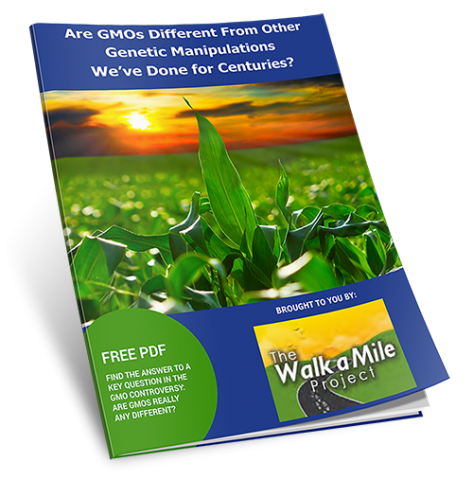Agroecology or GMO Technology — Will One of These End Hunger in Africa?
Agroecology, the application of ecological science to agriculture and agroecosystems, is still a viable option in Africa. The Oakland Institute recently released a report on 33 case studies that shed light on the success of agroecological agriculture across the African continent in the face of climate change, hunger and poverty.
The research demonstrates a variety of techniques used to farm effectively, including plant diversification, mulch, manure or compost application, intercropping, the natural restriction of pests or disease, agroforestry and water management structures.
Released just two weeks ahead of the COP21 Conference in Paris, says Anuradha Mittal, Executive Director of the Oakland Institute, “these case studies provide irrefutable facts and figures on how agricultural transformation – respectful of the farmers and the environment – can yield immense economic, social, and food security benefits while ensuring climate justice and restoring soils and the environment.”
We hear time and again, however, that GMOs are needed to feed the world, and those who think differently are often accused of standing in the way of progress.

Agroecology vs GMO Technology in Africa. Original Photo – by P. Casier / CGIAR via Flickr (CC BY-NC-SA) -here:
https://www.flickr.com/photos/cgiarclimate/5216999719
For example, the former UK environment minister Owen Paterson was in South Africa earlier this year, praising the success of the ‘green revolution’ and encouraging the use of GM crops. He warned that a food revolution that could save Africa from hunger is being held back.
He rounded on opponents of GMOs and chemical-intensive agriculture by stating: “These enemies of the Green Revolution call themselves ‘progressive’, but their agenda could hardly be more backward-looking and regressive… their policies would condemn billions to hunger, poverty and underdevelopment. And their insistence on mandating primitive, inefficient farming techniques would decimate the earth’s remaining wild spaces, devastate species and biodiversity and leave our natural ecology poorer as a result.”
Yet, what about the pesticides needed to grow GM Crops? Aren’t pesticides and fertilizers “decimating” our environment more than this “primitive” type of farming ever could?
Agriculture, forestry, and other land use are responsible for nearly a quarter of all greenhouse gas emissions from human activity. The International Panel on Climate Change noted that emissions from these sectors have almost doubled over the past 50 years and could increase by an additional 30% by 2050. The use of synthetic fertilizers is the fastest growing source of agriculture GHG emissions, having increased 37% since 2001.
And are we simply seeing big money help dictate market trends?
The Gates Foundation, Monsanto and Western governments are placing African agriculture in the hands of big agribusiness for private profit and strategic control under the pretext of helping the poor.
Since 2006, The Gates Foundation has funded the Alliance for a Green Revolution in Africa (AGRA) to the tune of almost $420 million. Some opponents think AGRA is out to dispose of the small farmer and subject countries to the whims of rigged global markets.
For more on that, see this article on Africa’s food security and the G8’s new alliance in The Guardian from a couple years ago, which points to some disturbing trends, but is beyond the scope of today’s post (although we’ll most definitely dig deeper into that later).
As for the agroecology vs GMO debate, you can read the rest of the story here:
http://www.theecologist.org/News/news_analysis/2986355/the_tremendous_success_of_agroecology_in_africa.html



